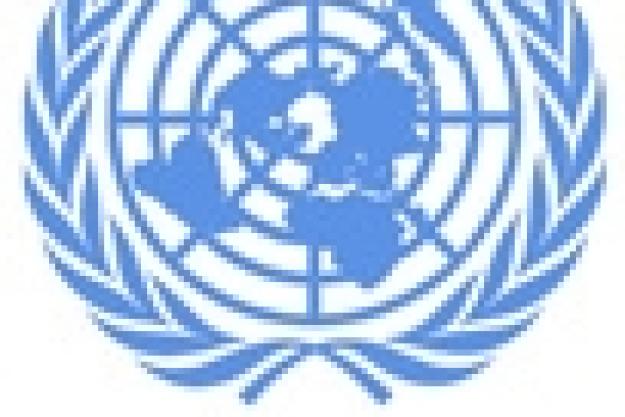
In his address to the Sixty-First Session of the United Nations General Assembly on 20 October 2006, the Director-General of the Organisation for the Prohibition of Chemical Weapons, Ambassador Rogelio Pfirter, expressed on behalf on the Organisation his congratulations to H. E. Mr. Ban Ki-moon, Foreign Minister of the Republic of Korea on his unanimous election as the next Secretary-General of the United Nations and looked forward to cooperating closely with him in promoting international peace and security.
Registering the fact that significant progress continues to be made in the Chemical Weapons Convention’s national implementation by all States party to it, Ambassador Pfirter noted that it was encouraging to report that the vast majority of States Parties have set up a National Authority as required under Article VII of the Convention. At the same time, he underscored the need to continue to provide support to all States Parties as they endeavour to close the gaps in their national implementation obligations, including the adoption of the legislation and the measures necessary to prohibit any of their nationals or entities from engaging in any activity proscribed by the chemical weapons ban.
Since 29 April 2012 is the final deadline by which each and every chemical weapon declared by States Parties needs to have been destroyed, Ambassador Pfirter underlined the singular importance of reaching this disarmament milestone on time to ensure the ultimate success of the Convention.
In detailing the challenges that the OPCW is addressing in its collective effort to eliminate all chemical weapons, Ambassador Pfirter highlighted the need for sustained and increased efforts in some categories of industry inspection.
He also made clear his concern that significant hurdles lie ahead before the Convention’s complete universality is achieved. In his address, Ambassador Pfirter appealed to all States that had not joined to do so without delay. In this regard, he recalled that the United Nations Security Council had decided in its resolution 1718 to call upon the Democratic Peoples’ Republic of Korea to abandon nuclear, as well as all other existing weapons of mass destruction and ballistic missile programmes in a complete, verifiable and irreversible manner. Ambassador Pfirter reaffirmed the OPCW’s pledge to assist the Democratic Peoples’ Republic of Korea in joining the Convention.
In his appeal to the countries in the Middle East that thus far have not joined the Convention, Ambassador Pfirter called on them to take action without delay. He asserted that any reluctance to accede or ratify the Convention is dangerous and unfair to the international community, which in its overwhelming consensus has shouldered the obligation to be transparent in this sensitive area.
With the Tenth Anniversary of the Chemical Weapons Convention’s entry into force approaching on 29 April 2007, Ambassador Pfirter expressed his thanks to those States Parties that intend to mark the occasion.
In particular, Ambassador Pfirter recognized with gratitude the valuable and substantial contribution that has been made by the Government of the Kingdom of the Netherlands to facilitate the ceremonies and events, commemorating the Convention’s Tenth Anniversary. He noted that this active engagement was yet another concrete demonstration of the Netherlands’s active support for the goals of the Convention and the mission of the Organisation.
In a similar vein, Ambassador Pfirter extended a word of thanks to the Municipality of the City of The Hague, which is also supporting the Anniversary Commemoration and spares no effort in making the life of the Organisation as comfortable as possible.
In conclusion, Ambassador Pfirter pointed out that steady progress is being made daily in implementing the OPCW’s programme priorities in the core areas of verification; assistance and protection; international cooperation; and the promotion of universality. On behalf of the Organisation, he reaffirmed the Member States’ full commitment to the tasks involved in achieving a world free of chemical weapons. He stated that the OPCW’s mandate supports the aims of the United Nations Charter to serve the twin causes of peace and security, which the Member States are justifiably proud to do for their fellow States Parties and for the international community.
PR70 / 2006
